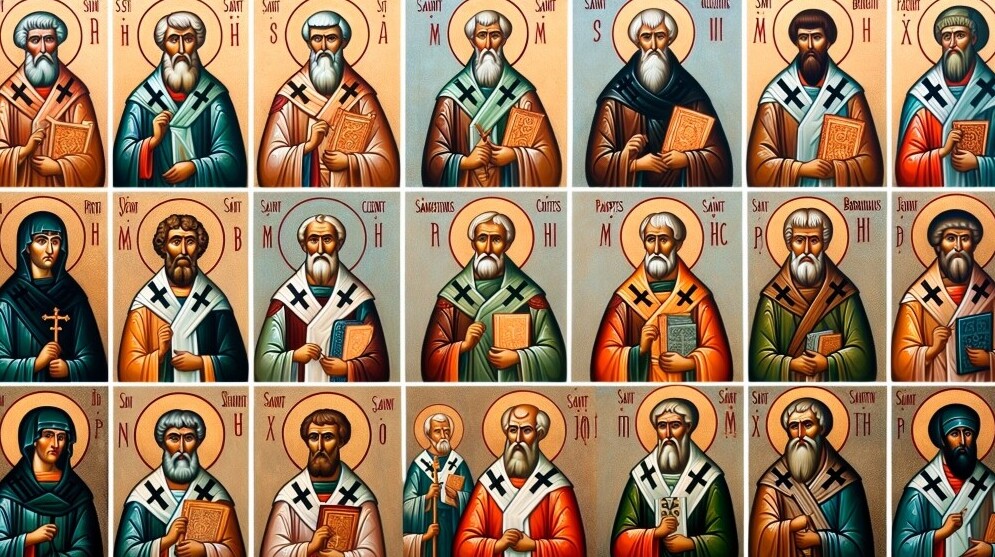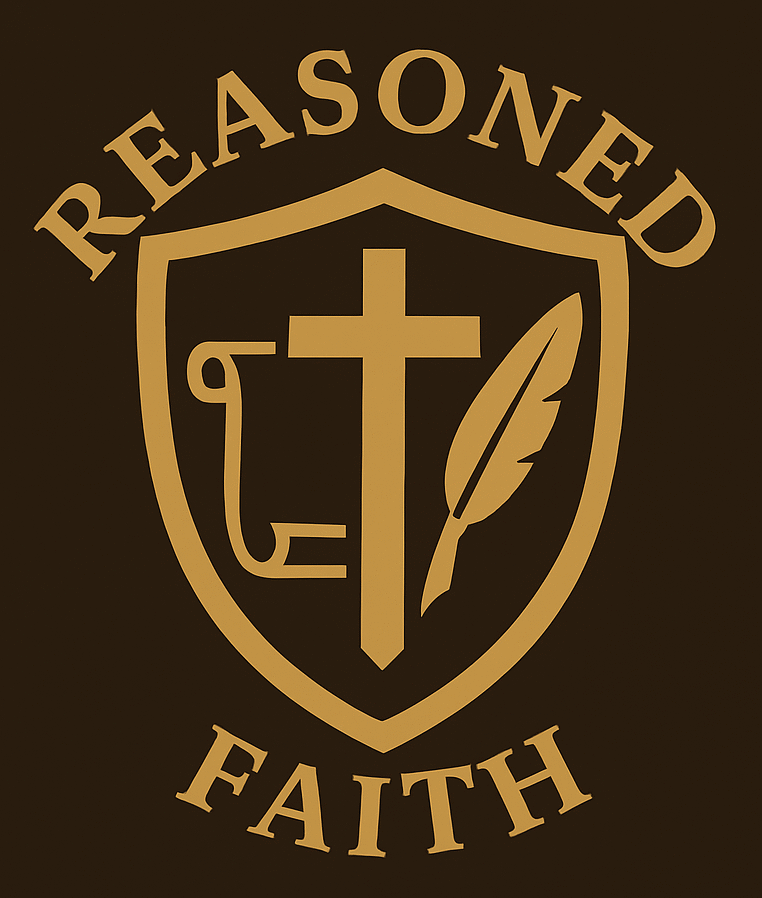
Understanding who the Church Fathers were is crucial for anyone exploring the foundations of Christianity. These influential figures were theologians, pastors, preachers, and teachers in the early centuries of the Church. Their primary role was to preserve and pass on the faith as taught by Jesus and the apostles. This wasn’t just about keeping records; it was about actively engaging in the life of the Church, ensuring that the teachings remained true to their original intent.
The historical importance of the Church Fathers cannot be overstated. They were the ones who helped clarify Christian doctrine during times of theological confusion and debate. Their writings addressed key issues and heresies of their time, laying down a solid framework for what became orthodox Christian belief. By doing so, they ensured that Christianity was not seen as a collection of myths, but as a faith grounded in real events and divine revelation.
For modern Christians, the Church Fathers are still incredibly relevant. Their insights and interpretations of Scripture continue to guide believers in understanding and practicing their faith. They serve as a bridge linking the current generation of Christians to the apostolic teachings, helping to keep the lineage of faith unbroken through centuries. Whether you are new to Christianity or have been a faithful follower for years, knowing about the Church Fathers enriches your spiritual journey by connecting you with the roots of your faith.
God’s Activity in History and Its Impact on the Church Fathers
Central to Christian belief is the idea that God is not distant but actively involved in creation and history. This conviction is most profoundly expressed in the Incarnation of Jesus Christ. According to Christian doctrine, God became human, lived among us, and through Jesus, performed the greatest act of divine intervention. This event has shaped the faith and the mission of the Church since its inception.
God’s active participation in history provides a solid foundation for Christianity. Unlike myths or legends, the events surrounding Jesus’ life, death, and resurrection are considered historical events, grounded in time and witnessed by people. This belief differentiates Christianity from many other religions and philosophies, emphasizing a real and tangible intervention by God in human history.
The Church Fathers played a significant role in affirming and articulating this historical foundation. They saw themselves as custodians of a faith that was not just spiritual but also historical. Their writings emphasized that the teachings and events described in the New Testament were not abstract ideas but real occurrences. This perspective was essential in combating early heresies that attempted to spiritualize or mythologize Jesus and his works.
For contemporary Christians, understanding God’s active role in history helps to deepen faith. It’s a reminder that the faith is not only about personal spirituality but also about recognizing God’s work in the world. The Church Fathers remind us that we are part of a historical continuum, bearing witness to God’s ongoing story with humanity. This understanding enriches our practice of faith, grounding it in a relationship with a God who is present and active in our world.
The Legacy and Influence of the Church Fathers

The foundation of the Christian Church is deeply rooted in the teachings and actions of its earliest leaders. Jesus Christ established the Church, but the task of building it up and spreading its teachings fell to His first followers, the apostles, and subsequently to the Church Fathers. Their commitment ensured that the teachings of Jesus were preserved and passed down through generations.
One of the primary missions of the Church Fathers was the conservation and transmission of the Christian faith. This wasn’t merely about preserving texts but also about living out the teachings and ensuring they were instilled in the community. By doing so, they created a continuity that linked each generation back to the apostles and, ultimately, to Jesus Himself.
The roles played by the Church Fathers were varied and extensive. They were bishops, priests, lay catechists, and theologians. Each contributed uniquely to the faith, whether through preaching, teaching, writing, or pastoral care. Their diverse backgrounds brought richness and depth to their interpretations and teachings, covering a wide array of doctrinal and practical issues.
The writings of the Church Fathers continue to be a valuable resource for modern Christians. These texts offer insights into early Christian theology, worship practices, and daily living. They provide a window into how the early Church understood and practiced its faith, helping to guide contemporary believers in navigating their own faith journeys.
The legacy of the Church Fathers lies in their steadfast commitment to accurately transmitting the apostolic teachings. Their work has left an indelible mark on Christianity, ensuring that the core beliefs and practices remain intact over millennia. For anyone seeking to deepen their understanding of Christian faith and history, studying the Church Fathers offers a rich and rewarding path.
Suggested Resources:
Here’s a little transparency: Our website contains affiliate links. This means if you click and make a purchase, we may receive a small commission. Don’t worry, there’s no extra cost to you. As an Amazon Associate I earn from qualifying purchases.
The Fathers Know Best: Your Essential Guide to the Teachings of the Early Church
Church Fathers: From Clement of Rome to Augustine
The Writings of St. Clement of Rome Paperback
When the Church Was Young: Voices of the Early Fathers Paperback

This post does a great job of highlighting the importance of the Church Fathers in shaping Christian faith. It’s fascinating to see how their work has helped preserve the teachings of Jesus throughout history. I especially appreciate the emphasis on their role in connecting modern Christians to the roots of the faith. Definitely a reminder of how valuable their contributions are to our understanding of Christianity today!
Thank you so much for your thoughtful comment! I’m glad you found the post engaging and insightful. Indeed, the early Church Fathers play a crucial role in preserving and interpreting the teachings of Jesus. They provide a valuable window into the early Christian faith, helping us connect with the roots of Christianity and correctly interpret the Scriptures in light of the teachings of Jesus and the Apostles. Their contributions are truly invaluable to our understanding of Christianity today. Your appreciation for their work is much appreciated!
Hi Emilio,
My workmate actually got me interested in the Church Fathers! He’s super passionate about Christian history and would always talk about how the writings of these early theologians have impacted his understanding of faith. He told me about how, during his own personal study, reading the Church Fathers helped him see how crucial their role was in keeping the teachings of Jesus and the apostles intact. For him, it was eye-opening to realize that they were like the early defenders of the faith, making sure that key doctrines were preserved through some pretty intense theological debates.
What’s cool is that he mentioned how the Church Fathers didn’t just leave behind written teachings—they also set an example by how they lived out their faith in challenging times. My workmate said it made him reflect on how our own actions and beliefs today are part of that long tradition.
Here’s a revised response:
That’s a fantastic story! Hearing how someone’s passion for faith can spark interest in others is always inspiring. Your workmate’s enthusiasm for the Church Fathers is contagious. It’s great that he could share how their writings have deepened his understanding of Christianity.
I think it’s important to remember that the Church Fathers weren’t just scholars; they were also bishops, clergy, and even disciples of Jesus’ disciples, making them close to the teachings of the early apostles. Their experiences and wisdom, shaped by their roles in the early Church, offer valuable insights for us today. Thanks for sharing this inspiring story.